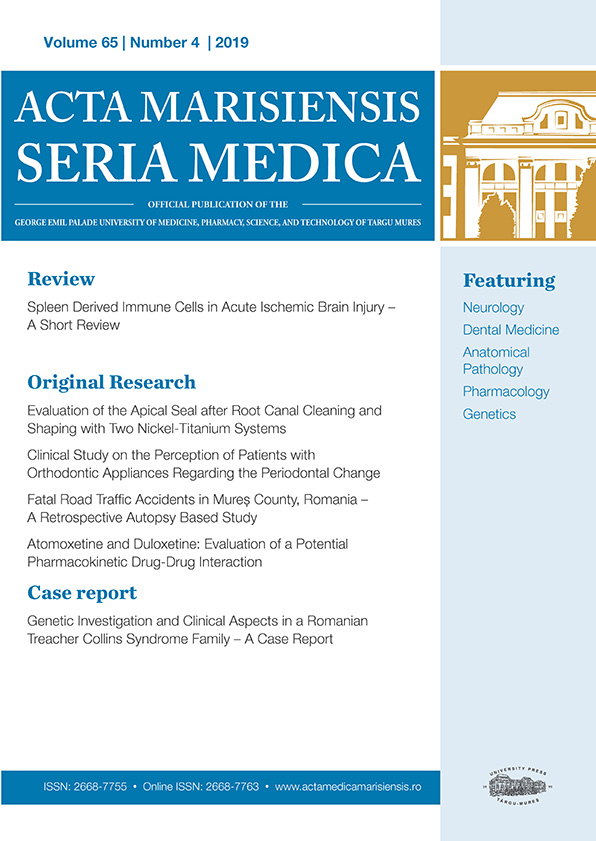Vascular injury in macroscopically normal skin of patients with severe COVID-19 infection: clinical-pathologic correlations
DOI:
https://doi.org/10.2478/amma-2021-0027Keywords:
COVID-19, skin histopathology, vascular injury, thrombosis, endothelial cell injury, perivascular inflammatory infiltrateAbstract
Objectives: Taking into account that the documentation of the histopathological features in severe disease caused by SARS-CoV-2 has been scarce due to the avoidance of performing autopsies, the aim of the study was to detect the microscopic changes associated with severe COVID-19 infection in normal-appearing skin, without prominent dermatologic signs of a generalized microvascular thrombotic disorder, in accordance with the clinical evolution of disease.
Methods: In this morphological and immunohistochemical study we included cutaneous biopsy samples from 12 symptomatic patients with severe and critical type SARS-CoV-2 infection (with the admission date between February and June 2020), treated in the Intensive Therapy Unit Care of Emergency County Hospital Targu-Mures, Romania.
Results: The average age of our patients was 65.18 ± 14.21 years (range 41 to 83), and 66.67% of the patients were male. The histological and immunohistochemical assessment of cutaneous biopsies: in 4 cases the histological examination revealed small fibrin thrombi in deep-seated venules and small veins of subcuticular adipose tissue, and also 4 cutaneous biopsies showed occlusive vascular thrombosis in association with massive perivascular inflammatory infiltrate destroying and compromising the integrity of the vessel wall. The immunohistochemical examination of the composition of perivascular inflammatory infiltrate showed a predominance of CD3 positive lymphocytes, admixed with CD68 positive Mo/MF, some of them activated with FXIII expression. In the perivascular infiltrate, the presence of granulocytes and B lymphocytes was not characteristic.
Conclusion: According to our observations, in severe COVID-19, the cutaneous tissue is involved even in the absence of clinically obvious changes. Due to the relatively easy accessibility of skin samples, these could be applied to determine the severity of the patient's clinical status, and to predict the necessity for anti-complement or anticoagulant treatments in the early stages of a severe SARS-CoV-2 infection.
Downloads
Published
How to Cite
Issue
Section
License
Acta Marisiensis Seria Medica provides immediate open access to its content under the Creative Commons BY 4.0 license.









